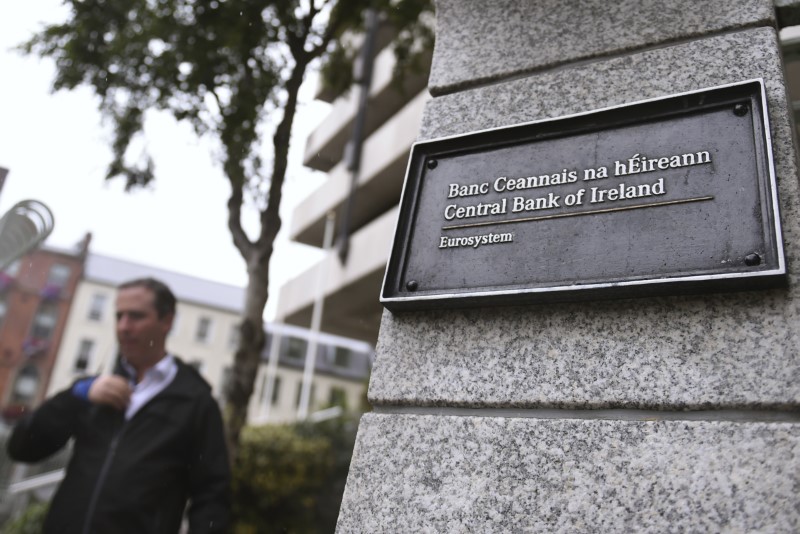By Padraic Halpin
DUBLIN (Reuters) - Ireland's central bank believes a proposed law to hand it powers to intervene in setting mortgage rates may have a range of damaging side effects but it would have a duty to use the powers if enacted, a senior official said on Thursday.
The bill, tabled by Ireland's main opposition party to force banks to reduce their variable rates, passed the initial stage in parliament in May despite objections from a minority government that is not large enough to block legislation.
The central bank had consistently said it should not be given such powers and joined the country's finance minister, European Commission and European Central Bank in criticising its likely effectiveness.
"Short term fixes may have long term negative consequences for consumers," Ed Sibley, Director of Credit Institutions Supervision at the central bank, told a parliamentary committee scrutinising the legislation.
"We are concerned that the bill focuses on the symptoms of a complex problem and may, therefore, not only be unsuccessful but runs the risk of being counter-productive, as it may have damaging side effects on the functioning of the market."
Sibley said rates were comparatively higher in Ireland due to a lack of competition, a default rate 10 times higher than in most euro zone countries and uncertainty over the recoverability of collateral due to Ireland's low level of repossessions.
As well as failing to tackle those causes, capping rates may stifle the prospects of any new entrants coming into the market, limit mortgage availability to low-risk customers and lead to a rise in rates, fees and commissions on other products, he said.
Michael McGrath, the finance spokesman for Fianna Fail, the party proposing the legislation, said the restrictions remained "urgently required". The bill will move to formal committee stage in the new year when amendments can be tabled, he said.
Some analysts believe the bill will not become law, citing constitutional concerns. Others say that even if it did, the central bank was unlikely to use the powers, though Sibley said they would be duty-bound to do so.

"While we have deep reservations, if powers are conferred upon us, we have the duty to use those powers," he said.